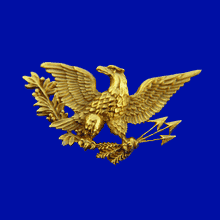Thursday, September 27, 2012
From Tucson to Turtle Bay
On January 12, 2011, President Obama delivered perhaps the finest speech of his presidency eulogizing the death of six innocent Americans at the hands of a deranged gunman in Tucson, Arizona just a few days earlier. Now, in the year of an election, four Americans--including an ambassador--were murdered in a barbaric and savage attack on our diplomatic mission in Benghazi. For all the differences between these two events, they both have one thing in common: neither had anything to do with the exercise of free speech.
In his moving oratory at the campus of the University of Arizona, the President silenced a raucous crowd of students and sternly rebuked the politicians and commentators on the left who in the preceding days had tried to lay the blame for the massacre on the vibrancy of political expression and debate in this country. Earlier this week at a meeting of the U.N. General Assembly, the President once again spoke about the death of innocent Americans, this time at the hands of terrorists, but the emphasis of his speech was very different.
After the rampage in Tucson in which Jared Loughner ended the life of a federal judge and a nine-year-old girl and severely wounded a congresswoman among his victims, liberal commentators pushed a narrative of violent rhetoric and incivility to explain the tragedy. However, as immediately became clear, the perpetrator had no political motives, but was and is very mentally ill. Moreover, despite the calls for more restrained and civil discourse, political debate and the coverage of it in the media quickly resumed the same incendiary and vitriolic tone as before the murders.
Just as with the Tucson massacre, the motives of the killers in Libya are very clear. This was not a "protest" against an amateur video. This was an act of pure slaughter in violation of every precept of international law and diplomacy. Despite this, and even though leaders in the intelligence community, the Secretary of State, and his own Press Secretary have all admitted that it was a premeditated and overt act of terror aimed directly at the United States, the President only mentioned the word "terrorism" once in his address—and not even in reference to the violence in Libya.
Some commentators on the right have observed that instead of unambiguously defending the sacred American right to free speech as he did in Tucson, the President's remarks were more calibrated for an international audience that is openly hostile to American values. Instead of speaking with determination and resolve, it seemed that the President was searching for common ground with people who wish to destroy us. Unsurprisingly, there was not much in common to be found. This is a valid criticism.
However, the focus on free speech misses the point. In Tucson, the murders were the work of a madman. In Benghazi, the amateur video that probably got more views after the attack than before was merely a pretext for a long-planned act of terror by religious fanatics who despise the United States. In both cases, we make the mistake of trying to explain and rationalize evil on our own terms, when in truth, the innocent and the virtuous are always the first casualty when we pretend that pure and incomprehensible evil does not exist in the world.
Subscribe to:
Post Comments (Atom)



No comments:
Post a Comment